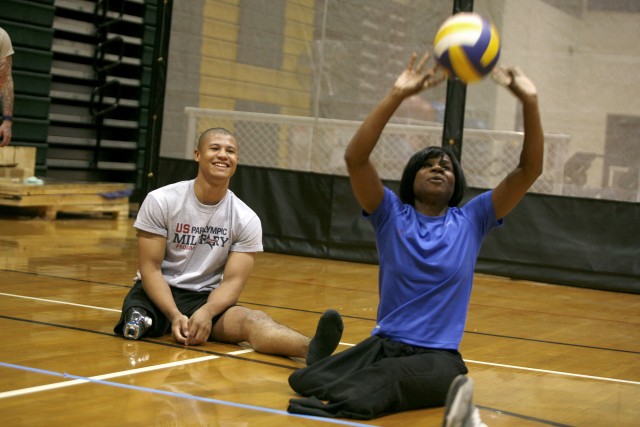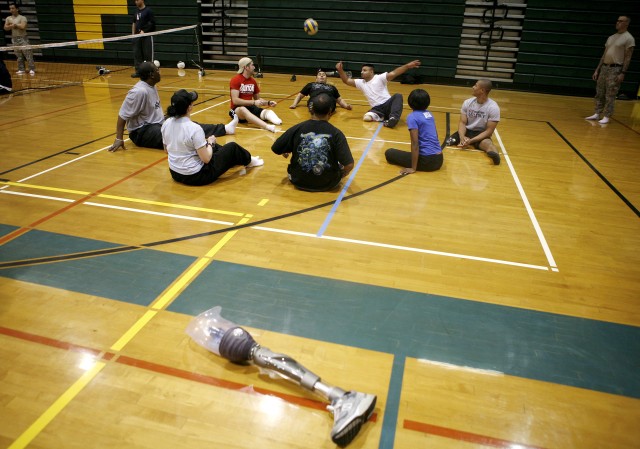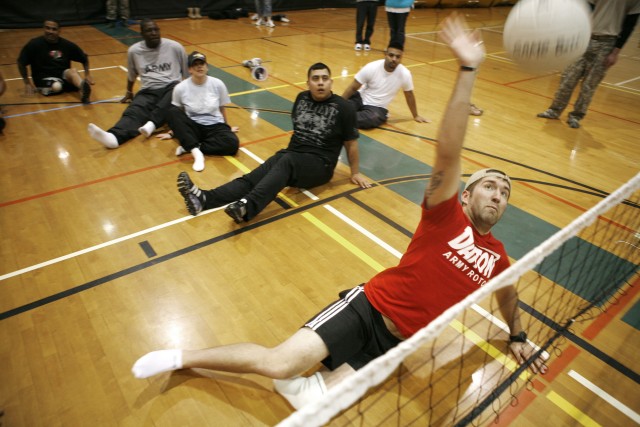FORT LEWIS, Wash. - A high-profile event conducted last week at Fort Lewis by a division of the U.S. Olympic Committee drew a great deal of attention, but its true impact will be felt in the coming weeks, months and perhaps years at the Warrior Transition Battalion.
The Paralympic Military Regional Sports Camp run May 5-8 by U.S. Paralympics introduced dozens of Fort Lewis WTB Soldiers to such sports as adaptive rowing and sitting volleyball.
"We're really trying to expose Soldiers to activities that they might not otherwise be able to do," said Lesley Vaughan, chief occupational therapist at the WTB. "Just the exposure can kind of enlighten people."
According to Charlie Huebner, chief of the Paralympic Division of the USOC, paralympics and the military have close ties.
"The paralympic movement exists today because of injured veterans," Huebner said. "That's how the movement started."
Last summer, the Fort Lewis WTB became the first in the Army to consult with U.S. Paralympics about establishing an adaptive sports program.
"I've got to commend Fort Lewis," Huebner said. "Fort Lewis was the first (warrior transition unit) that we worked with, and they really helped develop the pilot for what we're doing (at) other installations."
Fort Lewis wounded warriors will take what they learned at last week's camp and apply it to the WTB's adaptive sports program, which began earlier this spring. This week volleyball and disc golf were added to a program that already included aquatics, spinning, basketball, track, and strength and conditioning. SCUBA diving, rowing and equestrian will be added later.
"We decided what would be the easiest activities to implement," Vaughan said. "Some of the programs can be competitive."
Nearly all of the approximately 450 WTB Soldiers at Fort Lewis are expected to take part in at least one of the activities. Before they begin, the Soldiers have "positive profiles" established.
The profiles detail "what the Soldier can do, opposed to ... what a Soldier cannot do," Vaughan said. "We're trying to put a positive spin on looking more at a person's ability than a disability."
Vaughan saw the positive accentuated at the paralympic camp.
"We had a guy that had not run for 13 years after his particular injury, which just happened to be a brain injury," Vaughan said. "He ran for the first time in 13 years, and I cannot express to you how much he got out of that. He was as happy as a lark the rest of the day."
She also recalled what rowing last week on American Lake did for some wounded warriors.
"I heard the word 'freedom' kind of floating about," Vaughan said. "When you're out on the water, it just feels like you're free and not ... limited by any kind of disability."
If Vaughan's vision becomes reality, the Fort Lewis WTB adaptive sports program will have an impact on wounded warriors long after they take off their uniforms.
"My hope," said Vaughan, "is that these activities and these sports are lifelong for them."
Bob Reinert is a reporter with Fort Lewis' Northwest Guardian.






Social Sharing